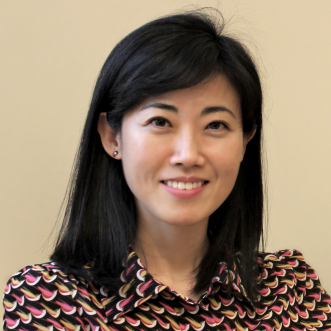




Choi’s lab studies the interaction of the immune system with the brain and the effects of that interaction on neurodevelopment, behavior and mood. For example, she is particularly interested in learning how cytokines, families of proteins that immune cells use to communicate, may act as neuromodulators that influence the development and activity of neurons in the cortex.
With this focus, Choi’s team has published several key insights that help explain how the maternal microbiome and immune activation during pregnancy can elevate the risk of offspring developing neurodevelopmental disorders.
In a 2016 paper in Science, Choi and collaborators showed in a mouse model of maternal immune activation that a particular type of T lymphocyte immune cell and its secretion of the cytokine interleukin-17a (IL-17a), mediated maternal immune activation and the development of autism-like behavioral abnormalities in offspring. The collaboration then followed with two papers in Nature in September 2017. One showed the phenomenon was further mediated by the presence of maternal intestinal bacteria that promote T cell differentiation. The other showed that the effect of IL-17a in the brain was focused in the S1DZ region of the cortex where they observed a deficit of neural inhibition. The team showed that by intervening to reduce excess neural activity, they could mitigate behavioral abnormalities associated with maternal infection.
Motivated by those findings, Choi’s long-term translational goal is to develop ways to assess the risk for individual patients, prevent the development of disease, and mitigate it post-development. Also, because her research has identified the S1DZ region of the cortex, which is hypothesized to be important for proprioception, as being particularly crucial, she is also studying the connection between proprioception and social behavior.
In earlier work Choi’s lab studied how sensory stimuli, such as smells, drive behavioral responses and internal states depending on past experience.
Choi joined the faculty of MIT's Department of Brain and Cognitive Sciences in 2013 and The Picower Institute for Learning and Memory in 2019. She received her bachelor’s degree from University of California, Berkeley, and her Ph.D. from Caltech, where she studied with David Anderson. She was a postdoctoral research scientist in the laboratory of Richard Axel at Columbia University.
2014 Alfred P. Sloan Research Fellow
2014 Cell ‘s 40 under 40
2015 The Samuel A. Goldblith Career Development Professorship
2017 NARSAD Independent Investigator Award
2018 The Peter Gruss Young Investigator Award
2019 Nancy Lurie Marks Family Foundation (NLMFF) Career Development Award
2021 Mark Hyman, Jr. Career Development Professorship
2021 Carol and Gene Ludwig Award for Early Career Research
2022 Kenneth Rainin Foundation Innovator Award
2025 Samsung Ho-Am Prize in Medicine
Diversity Statement: The Choi Lab is committed to developing a climate that acknowledges and embraces diversity, supporting a culture that fosters inclusion, and actively pursuing equity. We believe that welcoming differences of opinion, experience, identity, and perspectives helps build a stronger community. We are committed to supporting those affected by historical injustices and to participating in outreach, mentorship, recruitment and upholding a progressive departmental Strategic Plan for people of all marginalized and disadvantaged backgrounds.
Matias Andina
Graduate Student
Hannah Caris
Laboratory Technician
Daniel Cho
Graduate Student
Mengyang Feng, Ph.D.
Postdoctoral Fellow
Tomoe Ishikawa, Ph.D
Postdoctoral Fellow
Yire Jeong, Ph.D
Postdoctoral Fellow
Byeongjun Lee, Ph.D.
Postdoctoral Fellow
Irene Davila Mejia
Laboratory Technician
Changhyeon Ryu, MD-Ph.D.
Postdoctoral Fellow
Natalie Soares
Laboratory Manager
You-Hyang Song, Ph.D.
Postdoctoral Fellow
Mario Witkowski, M.D./PhD.
Postdoctoral Fellow
Liu Yang, Ph.D.
Postdoctoral Fellow
Yasmin Yarden, Ph.D.
Postdoctoral Fellow
Former Lab Members:
Nora Benavidez – Graduate Student, USC
Shivani Bigler -Graduate Student, Columbia University
Han Kyoung Choe – PI, DGIST
Jingxuan Fan -- Graduate Student, Harvard
Joo Yeon Kim - Director, CNS division, Standigm Inc.
Jeong Tae Kwon, Ph.D, PI at KAIST
Irene Davila Mejia, Graduate Student, The Ohio State University
Daniel Montgomery – Graduate Student, MIT
Ashley Park – Medical Student, University of Michigan
Michael Reed – Research Scientist, Biogen
Alec Sheffield – Graduate Student, Yale University
Yeong Shin Yim, Ph.D. - PI, University of Pennsylvania Medical School
Xiaoying Zhang, Graduate Student at UBC